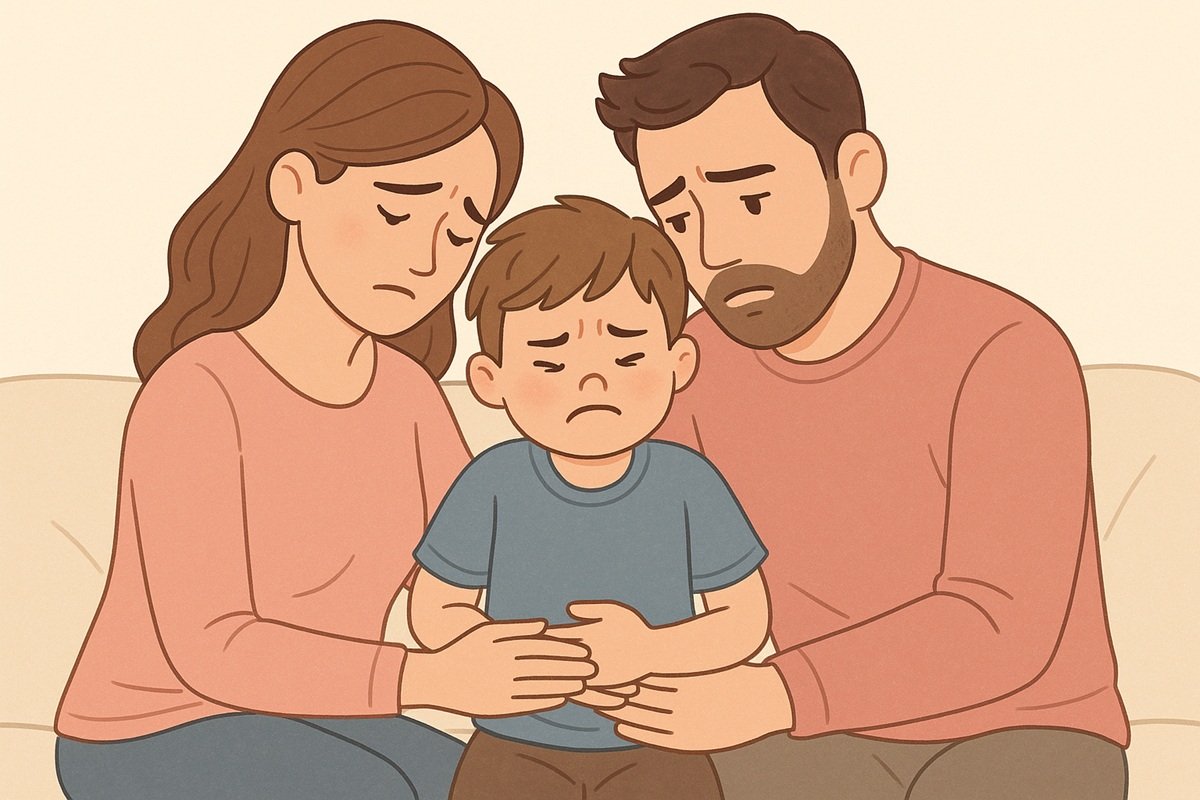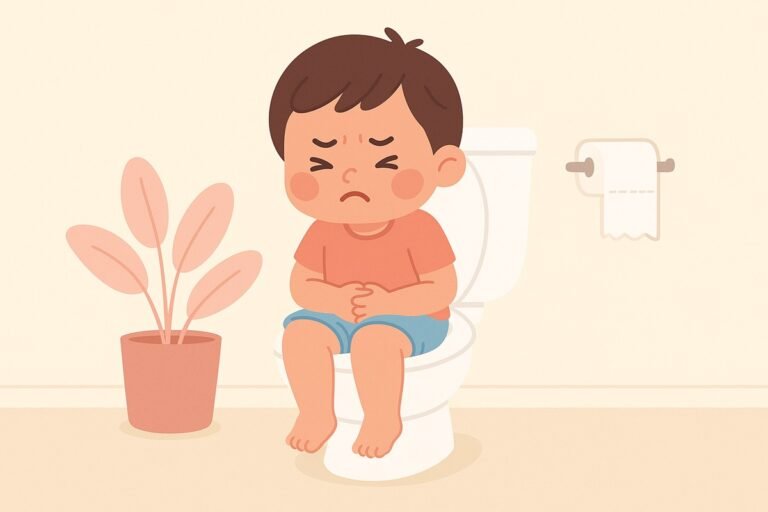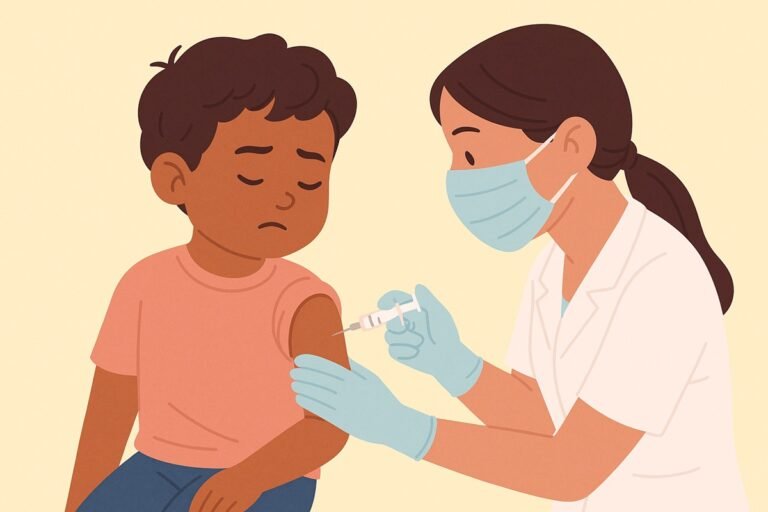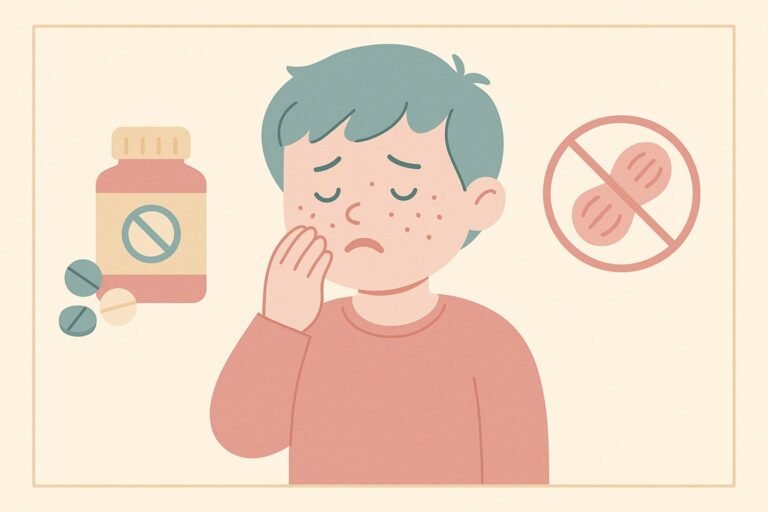Disclaimer: This article reflects the professional opinion of a licensed physician with experience in pediatric care. It is not a substitute for personal medical consultation. All medications, treatments, and health decisions should be supervised by qualified healthcare providers. Always consult your pediatrician before administering any treatment or medication to your child.
Diarrhea is one of the most frequent reasons children are brought to pediatric clinics and emergency rooms. It can disrupt your child’s comfort, appetite, and hydration, often leaving parents anxious, especially when it strikes suddenly or lasts more than a day or two. While most cases are mild and resolve with time and care, some require immediate medical attention.
In this comprehensive, yet easy-to-understand guide, we’ll walk you through everything parents need to know about diarrhea in children: From identifying what’s normal, through spotting danger signs, to knowing how and when to act. As a pediatric physician, my goal is to equip you with practical tools and medical insights to handle your child’s tummy troubles confidently and safely.
Table of Contents
What Is Diarrhea?
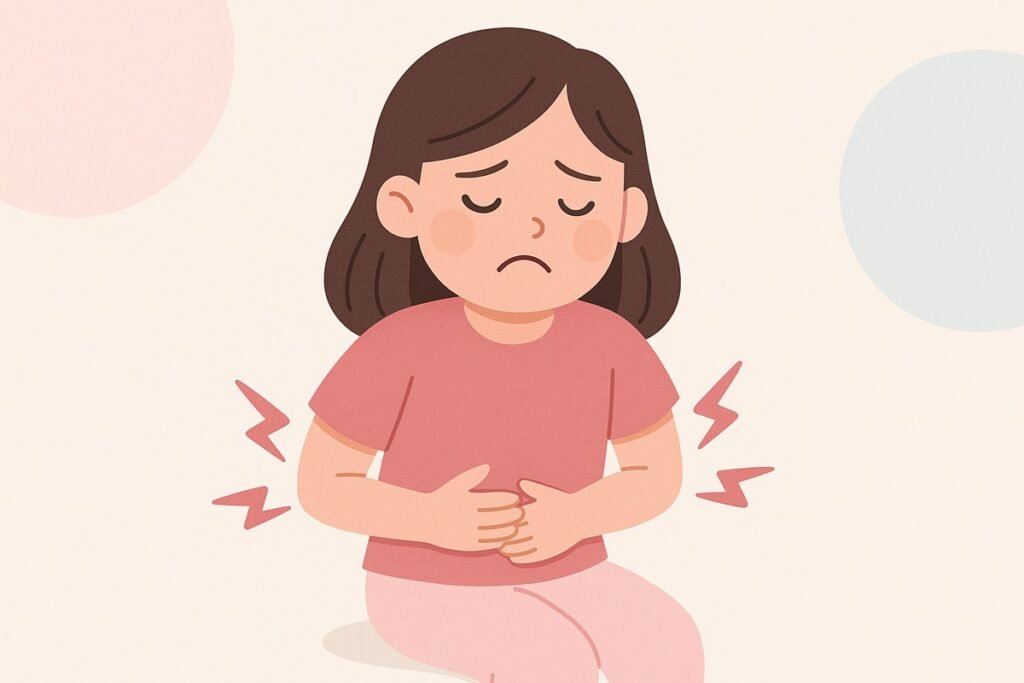
In simple terms, diarrhea refers to passing frequent, loose, or watery stools, more than what is typical for the child. It can occur with or without accompanying symptoms such as fever, vomiting, abdominal pain, or bloating.
The World Health Organization (WHO) defines diarrhoeal disease as three or more loose or liquid stools in a 24-hour period, but in children, especially infants, this can vary. What matters most is the sudden change in your child’s usual stool pattern.
There are three main types of diarrhea:
- Acute Diarrhea: Lasts less than 14 days. Often caused by viruses, bacteria, or food issues.
- Persistent Diarrhea: Lasts more than 14 days.
- Chronic Diarrhea: Lasts over 4 weeks and may indicate underlying health issues like allergies or digestive disorders.
Related: Parents’ Guide to Food and Drug Allergies: A Physician’s Expert Insight
How to Recognize Diarrhea in Children
Recognizing diarrhea may seem straightforward, but in children, especially babies, the picture can be blurry. For example, a breastfed baby might pass loose stools several times a day, which can be perfectly normal.
Signs that your child likely has diarrhea include:
- Sudden increase in stool frequency
- Stools that are looser, more watery, or explosive
- Foul-smelling or mucous-like appearance
- Change in color (green, yellow, or even slightly bloody)
- Associated symptoms like fever, vomiting, or crankiness
Always compare with your child’s usual pattern to judge whether this is diarrhea or just normal variation.
When Should Parents Be Concerned?
While most cases resolve on their own, there are clear warning signs that indicate something more serious is going on and prompt medical attention is necessary.
Danger Signs in Children with Diarrhea
- Signs of dehydration:
- Dry lips and tongue
- No tears while crying
- Decreased urination (no wet diaper in 6-8 hours for infants)
- Sunken eyes or fontanelle (the soft spot on baby’s head)
- Lethargy, weakness, or unusual sleepiness
- Blood in stool (red or dark black color)
- High fever over 102°F (39°C)
- Vomiting that prevents fluid intake
- Diarrhea lasting more than 3 days in infants or toddlers
- Green, foul-smelling, or slimy stool
- Rapid breathing or increased heart rate
Any combination of the above should prompt an immediate call to your pediatrician or a visit to the nearest healthcare facility.
Normal vs Pathological Diarrhea: How to Tell
Most cases of diarrhea in children are viral and self-limiting. However, understanding what constitutes normal temporary diarrhea versus a potentially serious condition is essential.
Normal or Functional Diarrhea
- Often caused by diet (too much fruit juice, artificial sweeteners, or fatty foods)
- No fever, blood, or weight loss
- Child is active and playful.
- Self-resolves in a few days
Pathological Diarrhea
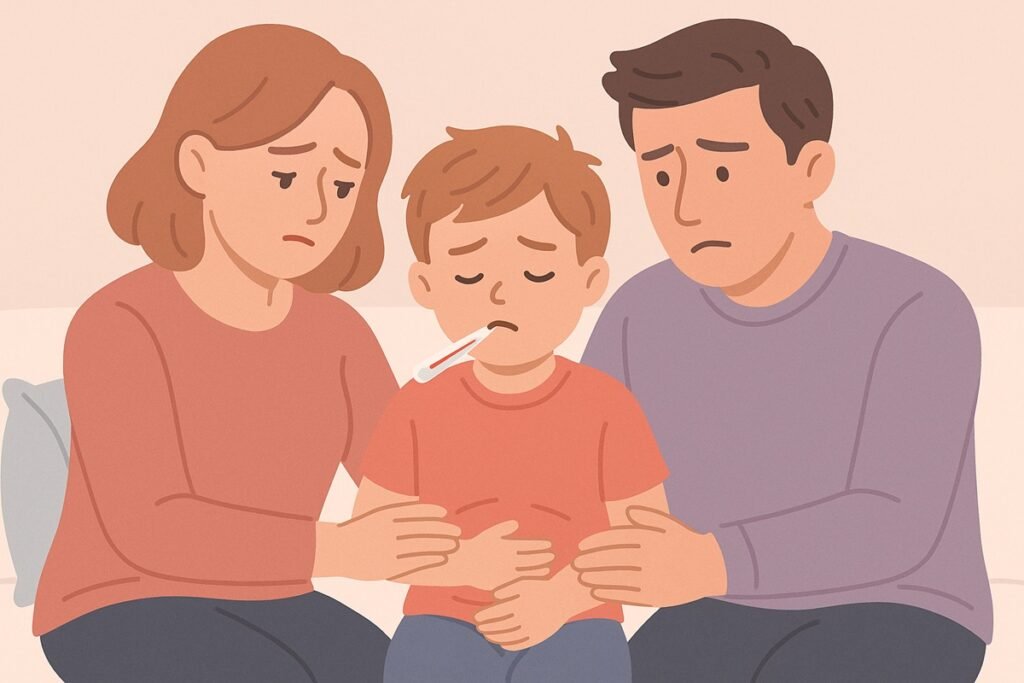
- Accompanied by signs of infection (fever, vomiting, or lethargy)
- Blood or mucus in stool
- Chronic or recurring episodes
- Associated with poor growth or weight loss
Chronic Diarrhea
- Lasts four weeks or more
- Can be caused by:
- Food allergies (such as cow’s milk protein allergy)
- Lactose intolerance
- Inflammatory bowel disease (such as Crohn’s or ulcerative colitis)
- Celiac disease
- Parasites like Giardia
Only a pediatrician can diagnose the underlying cause of prolonged or severe diarrhea.
Common Causes of Diarrhea in Children
Understanding the most frequent causes helps parents avoid unnecessary panic and respond effectively.
1. Viral Infections
- Rotavirus (once common, now rare due to vaccination)
- Norovirus, adenovirus, and astrovirus
- Usually comes with vomiting and low-grade fever
- Lasts 3-7 days
2. Bacterial Infections
- From contaminated food or water: Salmonella, E. coli, Shigella, and Campylobacter
- May cause blood in the stool
- Often requires medical treatment
3. Food-Related
- Overeating certain fruits, dairy, or greasy food
- Food allergies or intolerance (such as lactose)
- Ingesting spoiled or contaminated foods
4. Medications
- Antibiotics often disrupt gut bacteria, causing temporary diarrhea
5. Parasites
- Less common, but may cause longer-term diarrhea
- Examples: Giardia lamblia and Entamoeba histolytica
What Can Parents Do at Home?
In many cases, supportive care at home is all your child needs to recover fully.
1. Prevent Dehydration First
Your top priority is fluid replacement. Offer fluids frequently, in small amounts:
- Oral Rehydration Solutions (ORS): Specially balanced with salts and sugars to help absorption. These are better than juice or soda.
- For breastfed babies: Continue breastfeeding as usual.
- For formula-fed babies: Continue formula unless advised otherwise.
- Avoid sugary drinks, carbonated beverages, and dairy during active diarrhea.
2. Light, Digestible Foods
Once vomiting subsides or if diarrhea is not severe, offer bland foods:
- Bananas
- Rice
- Applesauce
- Toast (BRAT diet)
- Oats, potatoes, carrots
Avoid greasy, fried, or spicy food, which can worsen diarrhea.
3. Hygiene and Isolation
- Frequent hand washing with soap
- Disinfect surfaces, toys, and changing areas
- Keep the child home from daycare until at least 24-48 hours after last loose stool
Medications: What’s Safe and What’s Not
Most diarrheal illnesses do not require antibiotics or anti-diarrheal medication. In fact, some drugs can do more harm than good if used incorrectly.
Here are some medications that are usually safe to give to children:
1. Oral Rehydration Solutions (ORS)
- Essential in preventing and treating mild to moderate dehydration
- Available over-the-counter
- Should be given frequently in small sips
2. Probiotics
- Can be helpful in shortening the course of diarrhea, especially after antibiotics
- Available in drops, powders, or chewables
- Always ask your pediatrician for age-appropriate brands and doses
3. Zinc Supplements
- Recommended by the WHO for children with diarrhea, especially in developing regions
- May help reduce duration and frequency
4. Antibiotics
- Only prescribed when a specific bacterial infection is confirmed or highly suspected
- Not recommended for viral diarrhea
- Should only be used under pediatric guidance
5. Anti-Diarrheal Medications
- Not recommended in young children
- Medications like loperamide can cause serious side effects and should be avoided unless directed by a pediatrician.
Prevention: Keeping Diarrhea at Bay
As always, prevention is better than treatment.
Parents can reduce their child’s risk of diarrhea significantly with a few simple measures:
- Vaccination: Ensure your child receives the rotavirus vaccine, which prevents one of the most common and severe forms of viral diarrhea.
Related: All You Need to Know About Vaccinations: Parents’ Simplified Guide to Vaccines
- Hand Hygiene: Encourage handwashing before meals and after using the bathroom.
- Food Safety: Wash fruits and vegetables, cook meats thoroughly, and avoid unpasteurized dairy.
- Clean Water: Use safe drinking water, especially when traveling.
- Avoid Overuse of Antibiotics: Only use antibiotics when prescribed for a specific illness.
When to See the Doctor
If you’re unsure about your child’s condition, it’s always better to check with a medical professional.
You should see a doctor if:
- Your child is younger than 6 months with diarrhea.
- Shows signs of moderate to severe dehydration.
- Diarrhea persists beyond 72 hours.
- Vomiting is persistent.
- There is blood in the stool.
- Your child has a weakened immune system.
A doctor may request a stool test, blood work, or occasionally imaging if the cause isn’t clear or symptoms are prolonged.
Conclusion: Diarrhea Doesn’t Have to Be a Crisis
While diarrhea can be distressing – for both children and parents – it is usually temporary and manageable with the right care. The key lies in early recognition, proactive fluid management, and knowing when to seek professional help.
By staying calm, informed, and observant, you can confidently support your child through this uncomfortable but common illness and get them back to smiles, snacks, and steady stools in no time.

